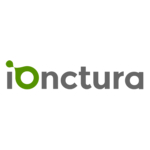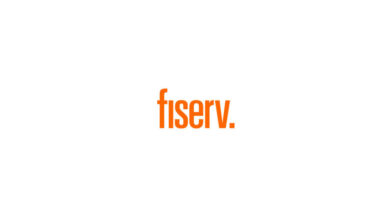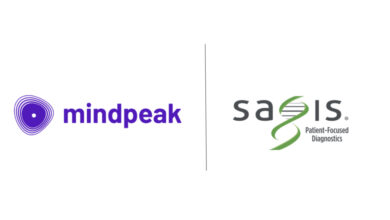iOnctura to Present at ASCO IOA-244 Showing Highly Promising Impact on Overall Survival for Patients With Metastatic and Refractory Uveal Melanoma

- 13 of 16 metastatic Uveal Melanoma (UM) patients continue in trial with promising overall survival rate at 1 year
- Excellent safety allowed for chronic administration with no dose alterations, achieving intended pharmacological effect
- Tregs reduced by IOA-244 in peripheral blood and tumor tissue, supporting mechanism of action
GENEVA, Switzerland–(BUSINESS WIRE)–iOnctura SA, a clinical-stage oncology company targeting key resistance mechanisms in solid tumours, will present at the 2022 ASCO (American Society of Clinical Oncology) Annual Meeting, taking place June 3-7 in Chicago, new interim Phase I data from completed study Part A and ongoing study Part B showing stable disease and improved overall survival compared to historical controls, with IOA-244 treatment.
“We observed, in patients who progressed on prior therapies, that IOA-244 stabilized their disease and halted the progression after we had exhausted all prior therapies,” said Dr Jeff Evans, Professor of Translational Cancer Research and Clinical Lead of the Institute of Cancer Sciences, University of Glasgow (UK). “We are pleased to be offering patients such a well-tolerated therapeutic candidate with potentially meaningful clinical benefit.”
“Life expectancy in metastatic UM patients refractory to immunotherapy is severely limited: These patients have a median survival of just 7.2 months. Patients receiving the Recommended Phase 2 Dose of IOA-244 in the DIONE-01 study have already demonstrated a median treatment time exceeding this and encouragingly, the majority of patients are continuing on treatment,” said Catherine Pickering, PhD, CEO of iOnctura. “The data in this study also show that daily oral IOA-244 has potentially best-in-class tolerability, which has allowed us to continue treating patients without the need for dose alterations. Based on these highly encouraging data in this Orphan indication, and with the full support of our current investors, we are now focusing on raising our Series B venture financing to fuel future development of IOA-244 and the other anti-cancer resistance products in our pipeline”
DIONE-01 is a two-part, first-in-human dose-escalation study evaluating oral IOA-244 in advanced metastatic cancers and as a combination partner for conventional and immune-therapies (ClinicalTrials.gov: NCT04328844). The objective of Part A, now complete, was to determine the safety, tolerability, the biologically effective dose range and consequently the dosage of IOA-244 in solid tumor cancer patients. The subsequent and continuing Part B of the study consists of expansion cohorts of patients with different solid tumor types, including patients with metastatic UM.
The poster presented at ASCO by lead author, Prof. Anna Maria Di Giacomo, Department of Medical Oncology, University Hospital of Siena, Italy, shows interim Phase I data in refractory UM patients, confirming safety and tolerability observed in Part A as well as longer than expected overall survival (OS). This OS trend is also being observed in subsequent Part B. Together and across both parts 16 UM patients have been treated to date. The one-year OS rate was 66.7% for patients in Part A (n=9). It is still too early to estimate the 1-year OS rate in Part B (n=7); at 6-months the OS rate is 100%. Significant reduction of Tregs in peripheral blood and tumor tissue was observed confirming the expected mechanism of action of a precision targeted PI3Kδ inhibitor.
“IOA-244 is a therapy which appeals to our patients, who come from various parts of the country. It allows patients to stay at home while receiving a well-tolerated and potentially effective treatment.” added Professor Maio, Department of Medical Oncology, University Hospital of Siena, Italy. ”We are eager to explore in greater detail the mechanism of action of IOA-244, its contribution in modulating T regulatory cells in cancer patients and applying new imaging approaches to document the effects of this novel immunotherapy.”
Details of the presentation:
- Title: First-in-human (FIH) phase I study of the highly selective phosphoinositide 3-kinase inhibitor delta (PI3Kδ) inhibitor IOA-244 in patients with advanced cancer: Safety, activity, pharmacokinetic (PK), pharmacodynamic (PD) results.
- Type: Poster
- Session: Developmental Therapeutics-Molecularly Targeted Agents and Tumor Biology
- Time: Sunday, June 5, 2022, 8:00 AM-11:00 AM CDT
PI3Kδ and IOA-244
High expression of PI3Kδ in both cancer cells and in the tumor immune landscape is a contributing factor to many solid tumor types escaping the host’s immune response. This is achieved by tumors, in part, through PI3kδ-mediated upregulation of T regulatory (Treg) cells, making the tumors ”cold”, or difficult to detect by the body’s immune system. IOA-244 selective inhibition of PI3kδ blocks proliferation of Treg cells, thus making “cold” tumors “hot”, unveiling them to immune system detection and facilitating an anti-tumour immune response.
Exquisite selectivity for PI3Kδ over other PI3 Kinase subtypes, including the closely related PI3Kγ, taken together with IOA-244’s unique semi-allosteric mechanism, which is achieved through differentiated binding to the PI3kδ protein’s kinase domain, represents a unique first-in-class mechanism in solid tumors. This mechanism may allow IOA-244 to lock the kinase in its resting state, preventing initiation of downstream cell signalling pathways normally triggered when it is activated at the cell membrane. The Company is investigating whether IOA-244’s semi-allosteric non-ATP competitive mechanism may block Treg upregulation and simultaneously avoid affecting other signalling cascades that may lead to toxicities. Other PI3kδ inhibitors are thought to act on PI3kδ by blocking the ATP pocket without preventing the kinase from being activated at the cell membrane.
Uveal melanoma (UM) is a rare malignancy arising within the uveal tract of the eye. There are approximately 7,000 newly diagnosed cases of uveal melanoma each year (around 2,000 in the United States). Over 50% of patients will progress to metastatic disease. Median overall survival for metastatic patients refractory to immunotherapy, the population included in the DIONE-01 trial, is approximately 7 months.
iOnctura SA is clinical stage oncology company targeting core resistance and relapse mechanisms at the tumor-stroma-immune interface. iOnctura’s best-in-class drug development programs combine immune-mediated and direct anti-tumor activity to deliver molecules with superior clinical efficacy and safety in oncology. Its lead program, IOA-244 is the only semi-allosteric PI3Kδ specific, orally dosed, small molecule inhibitor that is being developed in solid and hematological malignancies to address tumor and stroma induced immune suppression. IOA-244 is currently in Part B of a Phase 1 study. iOnctura’s second program, IOA-289, is an oral small molecule that inhibits the crosstalk between the tumor and its stroma and is in a Phase 1 clinical study. iOnctura is backed by blue chip investors including M Ventures, Inkef Capital, VI Partners, Schroders Capital, and 3B Future Health Fund. For more information, please visit iOnctura’s website.
About the Beatson West of Scotland Cancer Centre, UK
The Beatson West of Scotland Cancer Centre is the largest cancer centre in Scotland and serves a population of 2.6 million and has clinical links with all hospitals in the West of Scotland.
The Beatson is renowned for being the lead centre for delivering non-surgical cancer care.
There are approximately 150 innovative clinical trials ongoing at any one time, offering cutting-edge technologies, equipment and access to new cancer treatments.
Professor Jeff Evans
Professor Jeff Evans is Professor of Translational Cancer Research and Clinical Lead of the Institute of Cancer Sciences, University of Glasgow. He is also Honorary Consultant in Medical Oncology at the Beatson West of Scotland Cancer Centre, and Lead of the Glasgow Experimental Cancer Medicine Centre (ECMC). His clinical research interests are in clinical development of novel anti-cancer agents including molecular targeted therapies, immunotherapy, and advanced cellular therapies. He leads a multiple number of Phase I clinical trials of innovative anti-cancer agents, including the development of novel therapies for gastro-oesophageal and hepato-biliary-pancreatic cancers and melanoma.
About University Hospital of Siena, Italy
The University Hospital of Siena is a centre of reference for clinical research in the field of immune oncology. The centre is involved in some of the most important global immunotherapy trials in solid tumours, with the main purpose of making the latest therapeutic treatments available to patients.
Since 2017, the University Hospital of Siena established a multidisciplinary entity, the Centre for Immuno-Oncology (CIO), allowing a complete and successful integration of clinical research services.
The CIO has four integrated units, including the clinical facilities of Medical Oncology and Immunotherapy, the Clinical Research unit for clinical trials and the Translational and Pre-Clinical research laboratories.
Dr. Michele Maio
Dr. Michele Maio is full professor of Oncology at the University of Siena, Director of the Center for Immuno-Oncology, of the Division of Medical Oncology and Immunotherapy, and of the Department of Medical Oncology at the University Hospital of Siena, Italy. His clinical research interests include cancer immunobiology and epigenetics, as well as bioimmunotherapy of solid tumours. Dr. Maio is/has been Principal Investigator and National Coordinator of more than 100 Phase I‐III clinical trials.
– ENDS –
Contacts
iOnctura
Catherine Pickering
Chief Executive Officer
T : +41 79 952 72 52
E: [email protected]
Press Relations
Chris Maggos
BioConfidant Sàrl
T: +41 79 367 6254
E: [email protected]



